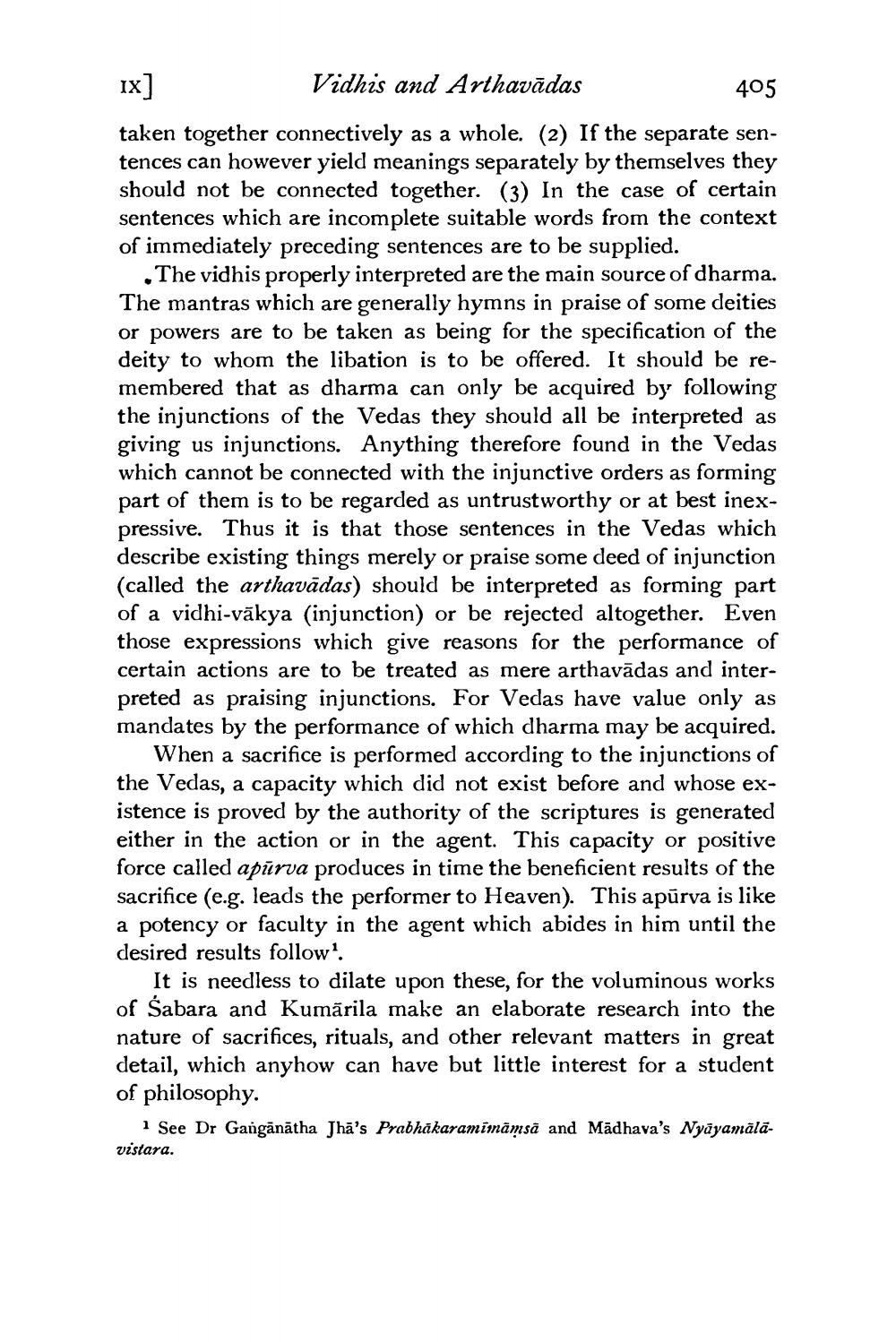________________
ix] Vidhis and Arthavādas
405 taken together connectively as a whole. (2) If the separate sentences can however yield meanings separately by themselves they should not be connected together. (3) In the case of certain sentences which are incomplete suitable words from the context of immediately preceding sentences are to be supplied.
The vidhis properly interpreted are the main source of dharma. The mantras which are generally hymns in praise of some deities or powers are to be taken as being for the specification of the deity to whom the libation is to be offered. It should be remembered that as dharma can only be acquired by following the injunctions of the Vedas they should all be interpreted as giving us injunctions. Anything therefore found in the Vedas which cannot be connected with the injunctive orders as forming part of them is to be regarded as untrustworthy or at best inexpressive. Thus it is that those sentences in the Vedas which describe existing things merely or praise some deed of injunction (called the arthavādas) should be interpreted as forming part of a vidhi-vākya (injunction) or be rejected altogether. Even those expressions which give reasons for the performance of certain actions are to be treated as mere arthavādas and interpreted as praising injunctions. For Vedas have value only as mandates by the performance of which dharma may be acquired.
When a sacrifice is performed according to the injunctions of the Vedas, a capacity which did not exist before and whose existence is proved by the authority of the scriptures is generated either in the action or in the agent. This capacity or positive force called apūrva produces in time the beneficient results of the sacrifice (e.g. leads the performer to Heaven). This apūrva is like a potency or faculty in the agent which abides in him until the desired results follow
It is needless to dilate upon these, for the voluminous works of Sabara and Kumārila make an elaborate research into the nature of sacrifices, rituals, and other relevant matters in great detail, which anyhow can have but little interest for a student of philosophy.
See Dr Gangānātha Jhā's Prabhākaramimämsä and Madhava's Nyāyamálāvistara.




